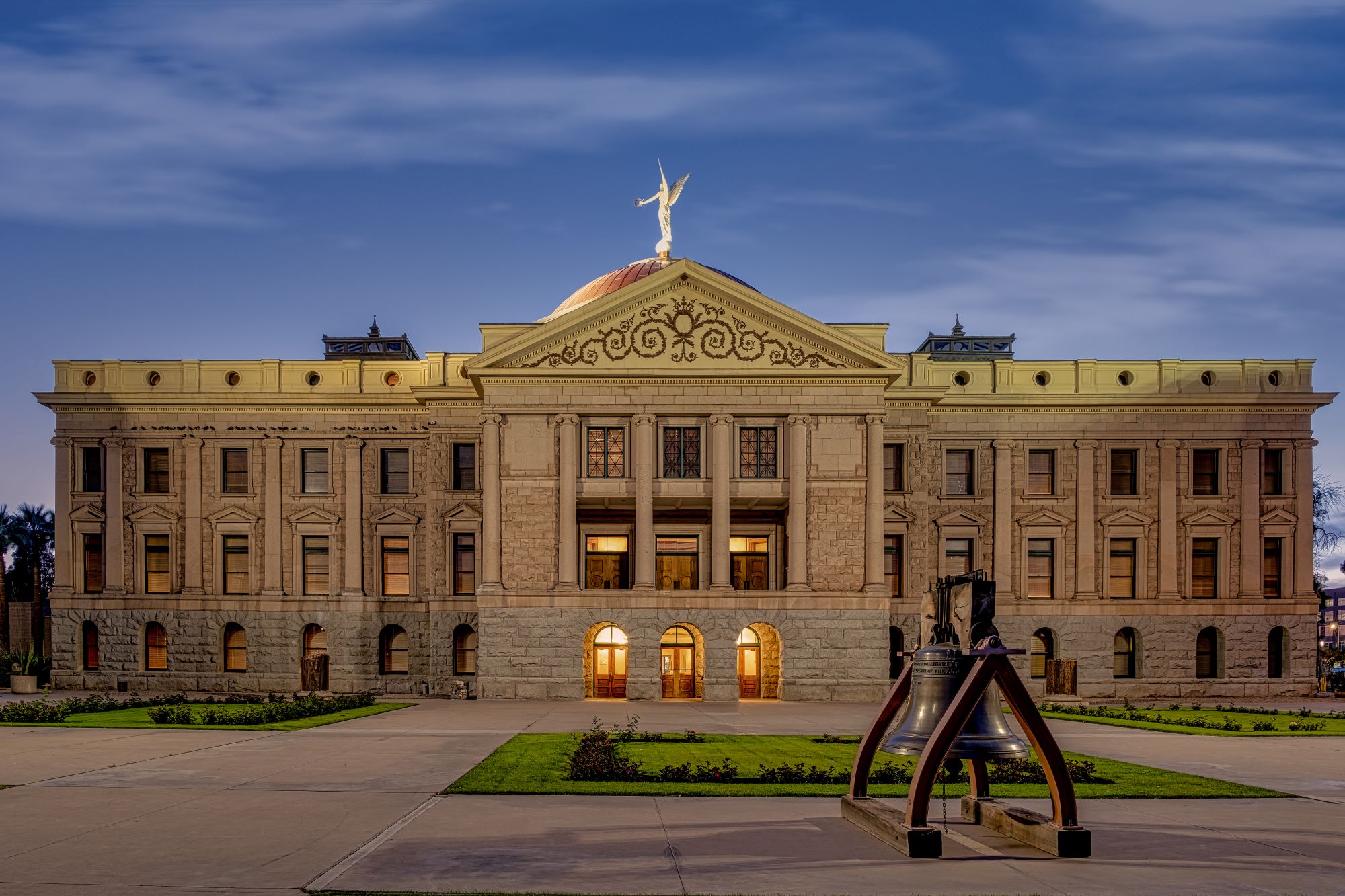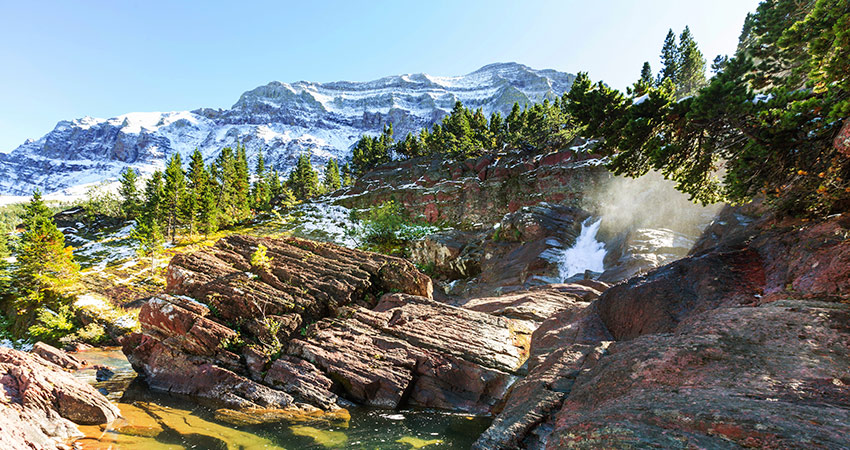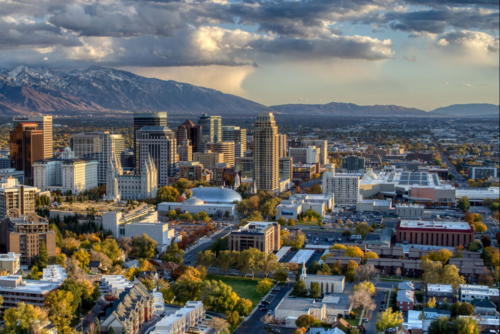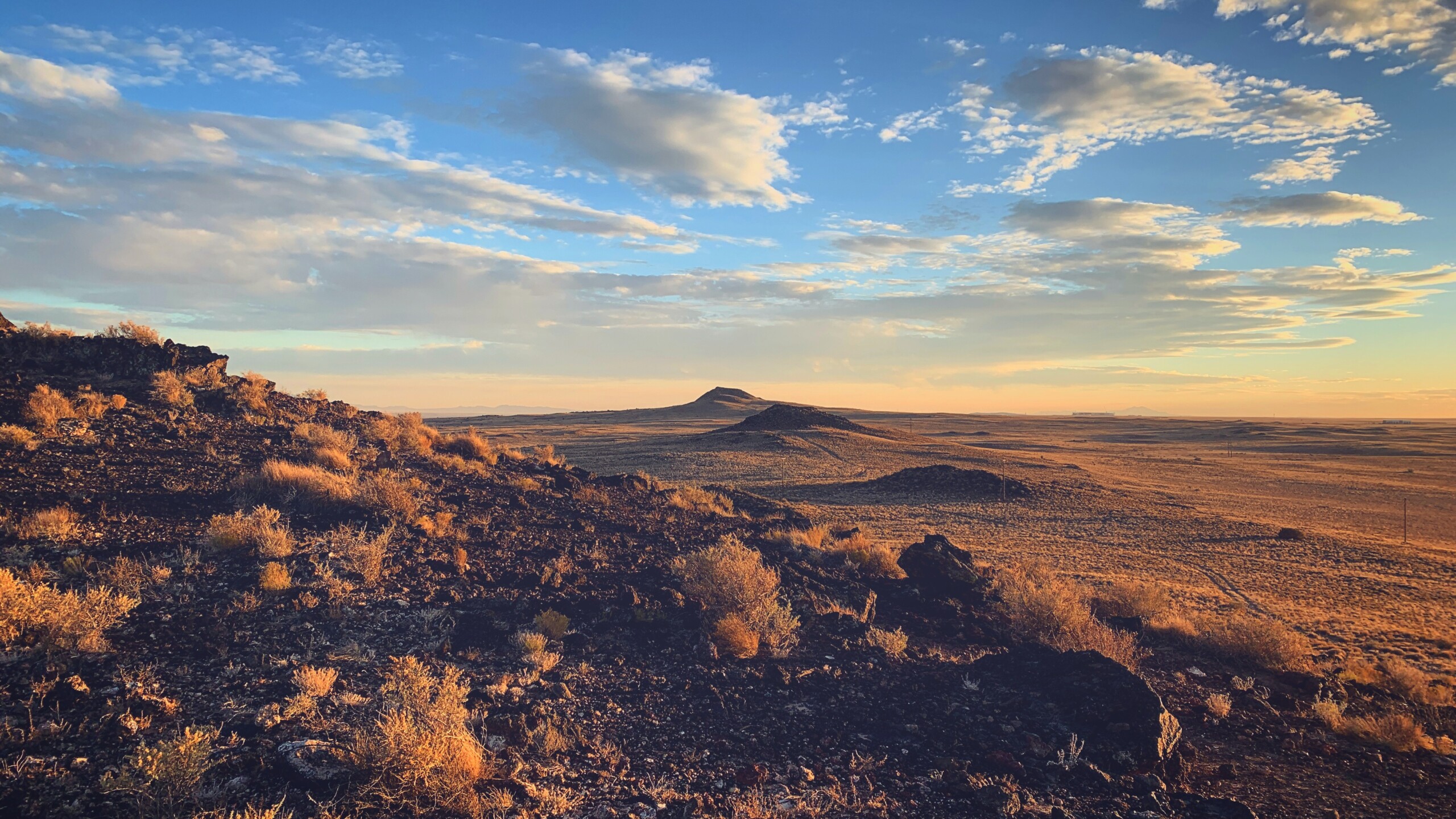Annual Report 2021
State-level policies play a major role in protecting the livability of communities, in addressing climate change, and in protecting the environment. The powers of state legislatures include modifying existing laws and making new statutes, developing the state government’s budget, and confirming executive appointments brought before the legislature.
As such, state legislatures have significant influence in deciding the issues that affect the environment, which is why WRA works at the statehouse. State legislative sessions provide major opportunities for our advocates and supporters to make their voices heard and let lawmakers know what is important to them.
In 2021, WRA ensured the passage of critical legislation to support our goals of tackling climate change, safeguarding healthy rivers, protecting and connecting lands and habitats, and ensuring clean air — while we also worked to stop bills that would impede progress.
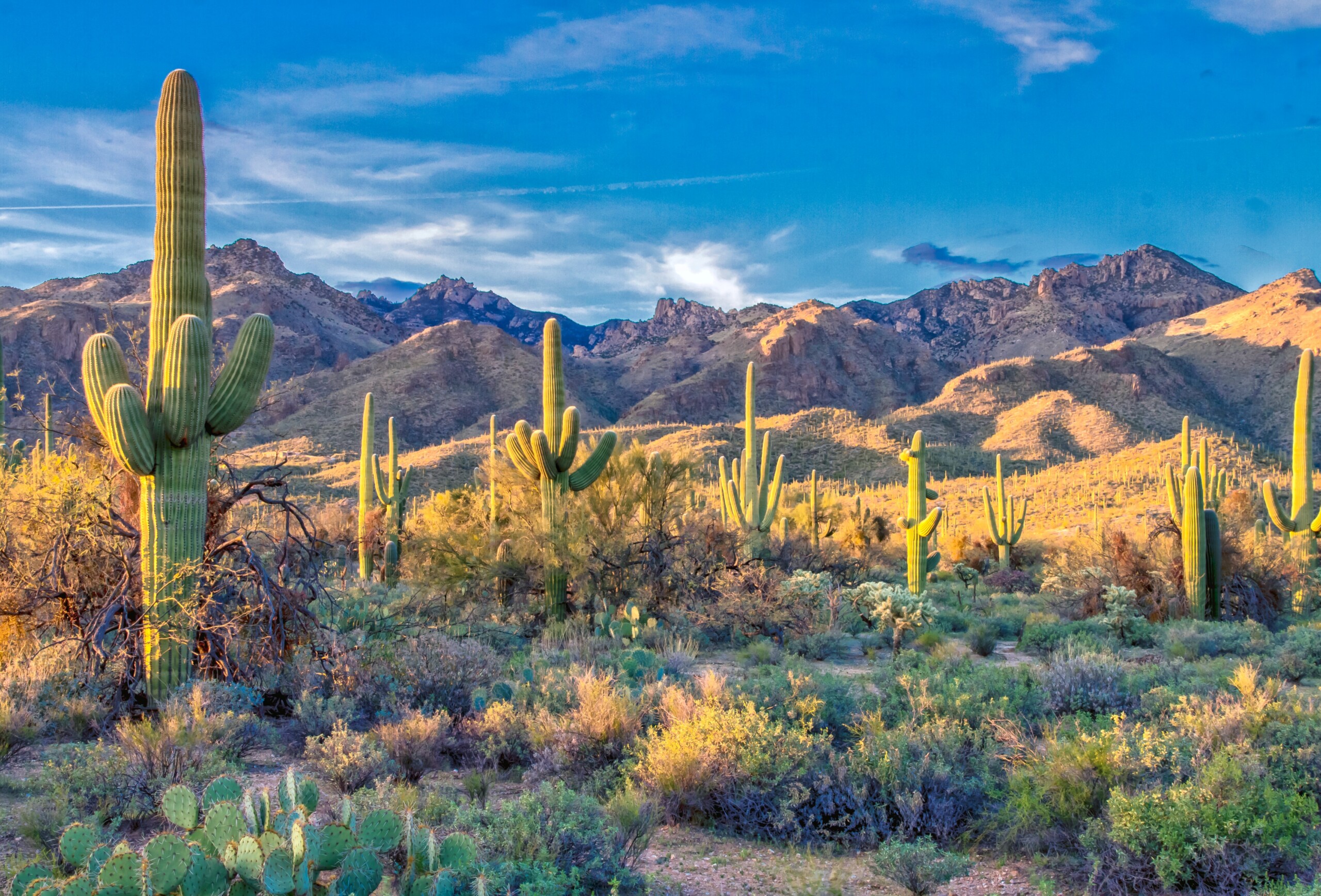
A Flexible Water Future in Arizona
“Use It or Lose It” is the premise of laws that stipulate that if water right owners don’t use all their water rights for a period of time, they risk losing those rights so someone else can put them to “beneficial use,” such as irrigating crops. Far from making every drop count, those antiquated water laws disincentivize wise water use and hamper innovation that would help stretch limited water supplies and protect rivers.
Arizona’s state legislature passed a new law in 2021 that increases flexibility in Arizona’s water management and will lead to more water flowing in the state’s rivers. House Bill 2056 allows water users to voluntarily divert less river water onto their property through efficiency and conservation measures for up to 10 years without forfeiting or abandoning their water rights.
WRA played a critical role in shaping Arizona’s new anti-forfeiture measure. We spent several years working with stakeholders, legislators, and others to craft the forward-thinking law, and our approach paid off. The bill received strong bipartisan support and a rare unanimous vote in the Arizona Senate. By allowing water users to divert less water onto individual properties, the revised law helps keep more water in local rivers and streams, benefiting people, watersheds, and wildlife, while also improving water security in one of the driest states in the country.
Nevada Clean Energy Transition Accelerated by Important Law
In 2021, Nevada took bold strides to build out electric transportation and transmission infrastructure and implement long-term decarbonization planning to reduce the harmful fossil-fuel emissions that cause climate change.
Senate Bill 448 accelerates Nevada’s transition to clean energy. This important new law drives investment in clean energy technologies, helps Nevada achieve its carbon reduction and clean energy goals, invests in the communities hardest hit by carbon pollution, and creates new jobs across the state.
WRA worked to advance this milestone bill through Nevada’s legislature, which included authorization for the state’s largest electric utility, NV Energy, to invest $100 million in near-term transportation electrification infrastructure and programs, such as installing charging stations along interstate highways, at outdoor recreation spots, and in urban areas where people may not be able to charge vehicles at home.
Additionally, the legislation provides important investment in low-income communities that bear the greatest burdens of both climate change and air pollution and will spur job creation and economic benefits through an accelerated transition to clean energy.
The passage of SB 448 reduces emissions, eliminates wasteful energy use, and makes electric vehicles more accessible to low- and middle-income Nevadans. It’s a win-win for everyone.
New Laws Make Colorado a National Leader in Addressing Emissions from the Building Sector
Fossil fuel use in buildings and industry is a major driver of climate change. According to the Environmental Protection Agency, direct combustion of gas, petroleum, and coal in homes and businesses accounted for 17% of all energy-related carbon emissions in Western states in 2017. Developing policies that encourage electrification of space and water heating as well as kitchen cooktops in homes and businesses builds on critical progress in decarbonizing the electricity sector.
WRA advised on and supported the passage of four important bills in 2021 to help Coloradans cut energy waste and power their homes and businesses with clean electricity. In addition to reducing utility bills, cutting down on indoor air pollution, and creating family-sustaining jobs in the buildings sector, these bills represent progress toward Colorado’s ambitious goals to reduce climate-warming emissions. Many of these bills are the first of their kind in the region — in some cases, even the nation.
This work is critical because buildings make up about 10% of Colorado’s greenhouse gas emissions and decarbonizing buildings requires replacing natural gas appliances in individual homes and businesses over time. Right now, the majority of buildings in the state (almost 80% of homes) burn gas for space and water heating. Change can’t happen overnight, so it’s crucial to get started on integrating electric appliances now. These bills require utilities and building managers to start making the investments needed, such as installing heat pumps and heat-pump water heaters in homes and improving building insulation, to place the buildings sector on a viable path to 90% decarbonization by 2050.
Our experts continue to be involved by participating in the public utility commission proceedings to implement several of these bills, and we’re taking these lessons to our work in other states.
Arizona’s state legislature passed a new law in 2021 that increases flexibility in Arizona’s water management and will lead to more water flowing in the state’s rivers. House Bill 2056 allows water users to voluntarily divert less river water onto their property through efficiency and conservation measures for up to 10 years without forfeiting or abandoning their water rights.
WRA played a critical role in shaping Arizona’s new anti-forfeiture measure. We spent several years working with stakeholders, legislators, and others to craft the forward-thinking law, and our approach paid off. The bill received strong bipartisan support and a rare unanimous vote in the Arizona Senate. By allowing water users to divert less water onto individual properties, the revised law helps keep more water in local rivers and streams, benefiting people, watersheds, and wildlife, while also improving water security in one of the driest states in the country.

Nevada Leads the Nation in Safeguarding 30% of Land and Water by 2030
The impacts of human development on wildlife and wild land are being felt across the West. The situation is so dire that ecologists say that to protect the vast majority of species on the planet, we must protect 50% of land and water by 2050.
However, the biggest challenge is mobilizing political will to protect half the planet. So WRA has set an interim goal of reaching 30% protection by 2030 (30×30). Nevada became the first state to pass legislation in support of the 30×30 goal. It is one of the most biodiverse states in the country — but this diversity is at risk due to the loss of natural lands and habitat.
WRA has been working diligently in Nevada for several years to demonstrate how important critical land protections are to the future of wildlife, conservation, and outdoor opportunities in the state, and it has started to pay off. In 2021, Assembly Joint Resolution 3, which supports the conservation of 30% of land and water by 2030, passed in the Nevada Legislature.
Achieving 30×30 will strengthen Nevada’s economy; help species survive and thrive; ensure the health of our rivers, lakes, and water supplies; and even combat the global climate crisis. WRA helped draft the resolution, advocated for its passage, and was a critical part of this landmark win.
Conserving and restoring natural areas can help reduce the amount of carbon dioxide in our atmosphere. New land and water protections will also make landscapes and habitats more resilient in the face of a changing climate. Plus, these protections offer a sustainable way to support local economies by expanding access to the outdoors and increasing outdoor recreation opportunities such as hunting, fishing, and wildlife viewing.
Conservation Funding Protected in Montana
When it comes to state legislatures, oftentimes the best offense is a good defense to ensure policies that would hurt the environment and accelerate climate change don’t get passed. WRA works to defend the states in our region from laws that would be detrimental to the environment and to advocate for conservation efforts that safeguard the lives and livelihoods in the West.
Montana voters approved Initiative 190 in 2020, a ballot measure supported by WRA and a coalition of partners that legalized recreational marijuana, imposed a tax, and dedicated half the tax revenue to a variety of conservation purposes, including land acquisition for habitat protection. During the 2021 legislative session, WRA and local advocates successfully opposed a slew of bad bills that, despite the wishes of Montana voters, would have redirected this new revenue to other purposes.
